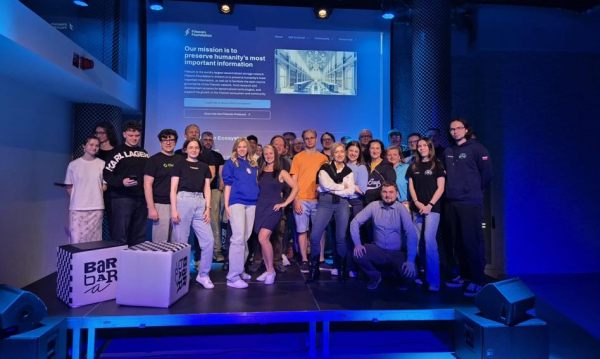Blockchain was recently associated mainly with internet forums of enthusiasts and experiments in the garage. Today, this technology is taking the business world by storm and is becoming the foundation of innovation in many industries. This trend is also clearly visible in Poland, where Web3 is no longer the domain of a handful of enthusiasts, but is becoming a serious topic for bankers, lawyers and entrepreneurs. Is blockchain really becoming the key to the future of business? Everything indicates that it is – and it is worth taking a closer look at why.

Just a few years ago, it was hard to imagine that the technology behind bitcoin would become the foundation for traditional financial institutions. And yet – today, even the largest banks are investing in blockchain. For the banking sector, this is not a curiosity, but a chance to streamline key processes. An example is PKO Bank Polski, which has implemented a blockchain-based solution, but it is not the only one; other banks, both “state-owned” and private, have their teams working on Web3, such as Santander.
It’s not just about banks, though. Blockchain is increasingly seen as a technology that increases data security in various sectors, which is becoming invaluable in an era of growing cyber threats.
See alsoHow artificial intelligence will affect the work of accountants
It seems that blockchain is growing up and is transforming from a toy of enthusiasts into a serious business tool.
Demand is growing, so supply is appearing
On the wave of professionalization of the industry, events such as ETH Warsaw, a grassroots conference and hackathon, are emerging, which attracts creators, programmers, and investors interested in blockchain technologies, but not only. For some time now, an integral part of the conference has been the legal segment, known as ETHLegal, so lawyers are also joining the programmers. It is not surprising, since the topic of blockchain itself touches on such an important issue as security.
Knowledge is sought, and here the community helps
The dynamic development of the industry brings with it a certain paradox: the growing demand for knowledge versus the lack of easily accessible, official, and especially safe and reliable sources of this knowledge.
The traditional education system cannot keep up with the pace of innovation. You will not find a “Blockchain” major at most technical universities. The first comprehensive postgraduate studies in blockchain in Poland were launched only recently at the Warsaw School of Economics, advertising them as “the first and only in Poland”. However, blockchain as a technology is still little known in the mainstream, often underestimated and sometimes misunderstood. There is a lack of managers and specialists who fully understand its potential and limitations, as well as experienced programmers themselves.
In this situation, it is grassroots initiatives and meetups that fill the educational gap. The community of cryptography and Web3 enthusiasts takes matters into their own hands, organizing workshops, hackathons and meetups where they share knowledge.
In Wrocław about what it is all about
At Bankier.pl we went to one of such meetings organized by ETH Warsaw, or more precisely to one of the “on the road” meetings organized in Wrocław, which is to be a kind of foretaste of the main ETH Warsaw 2025 conference. All this, as the organizers say, to support the community, but also to show that Poland can do a lot in this field.
– We organize ETHWarsaw to inspire, connect and support the Web3 community in Poland and show that our region has huge potential in the global world of blockchain technology – says Martyna Jeute from ETHWarsaw
In Wrocław, we talked to Paweł Zaremba, co-founder of the Chronicle project, among others, who explained what oracles are. The literal translation of oracle is “oracle,” and that is exactly the role it plays in Web3: it collects trusted information from the world (e.g. the dollar exchange rate, the result of a match), checks it in several independent sources, and then records it in the blockchain. Thanks to this, smart contracts, which themselves only see what is already in the blockchain, can operate on the basis of fresh, verified facts—without the risk of someone replacing them.
Web3 the new IT?
Recent years have brought a certain sobering up of the IT sector – a wave of layoffs at big tech companies and a more cautious approach by investors have led to talk of a recruitment crisis. Nevertheless, the blockchain field seems to be resisting these trends.
So will blockchain actually change the face of business and the Internet, or will it remain a curiosity?
Looking at the growing community, demand, emerging courses, trainings, and even slowly fields of study, it is hard not to get the impression that another giant is emerging in the technology industry. The answers to these questions will certainly be sought by participants of the ETH Warsaw 2025 conference. Today, however, we can say that perhaps it is high time for skeptics to stop treating blockchain solely through the prism of a cryptocurrency bubble, and to start seeing its potential, including, and perhaps above all, the potential in digital security.
AO.